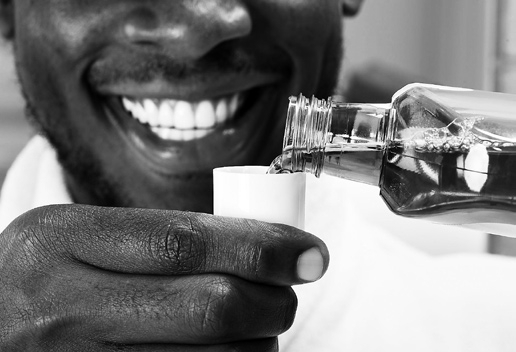
A NEW study conducted by researchers at the Penn State College of Medicine has found that a common dental item can inactivate human coronaviruses: mouthwash and oral rinses. For the study, the results of which were published in the Journal of Medical Virology, researchers tested various oral and nasopharyngeal rinses — which included a 1 percent solution of baby shampoo, a neti pot, peroxide sore-mouth cleansers, and mouthwashes — to determine how well they inactivated human coronaviruses. The baby shampoo solution, “which is often used by head and neck doctors to rinse the sinuses,” the researchers noted in a news release regarding the findings, was particularly effective; the solution inactivated “greater than 99.9 percent of human coronavirus after a two-minute contact time,” they said. The mouthwash and oral rinses were also efficacious, they found. “Many inactivated greater than 99.9 percent of virus after only 30 seconds of contact time and some inactivated 99.99 percent of the virus after 30 seconds.” More specifically, researchers “used a test to replicate the interaction of the virus in the nasal and oral cavities with the rinses and mouthwashes,” as the nasal and oral cavities are thought to be main points of entry for human coronaviruses, including SARS-CoV-2, better known as COVID-19. Though the researchers didn’t specifically test SARS-CoV-2 in the study, the novel virus is genetically similar to the other human coronaviruses tested, leading the researchers to hypothesize that the results would be similar. Lead study author Craig Meyers, a distinguished professor of microbiology and immunology and obstetrics and gynecology, said the results show that the amount of virus (viral load) in an infected person’s mouth could be reduced by using these common over-the-counter products, ultimately helping to reduce the spread of the novel virus. “While we wait for a vaccine to be developed, methods to reduce transmission are needed,” Meyers said in a statement. “The products we tested are readily available and often already part of people’s daily routines.” The team’s findings support past research that also looked at how oral rinses and mouthwashes may be able to reduce the viral load of human coronaviruses. For instance, a study published in the scientific journal Function in May also concluded that mouthwash could play a role in preventing the transmission of the novel coronavirus. (SD-Agencies) | 
